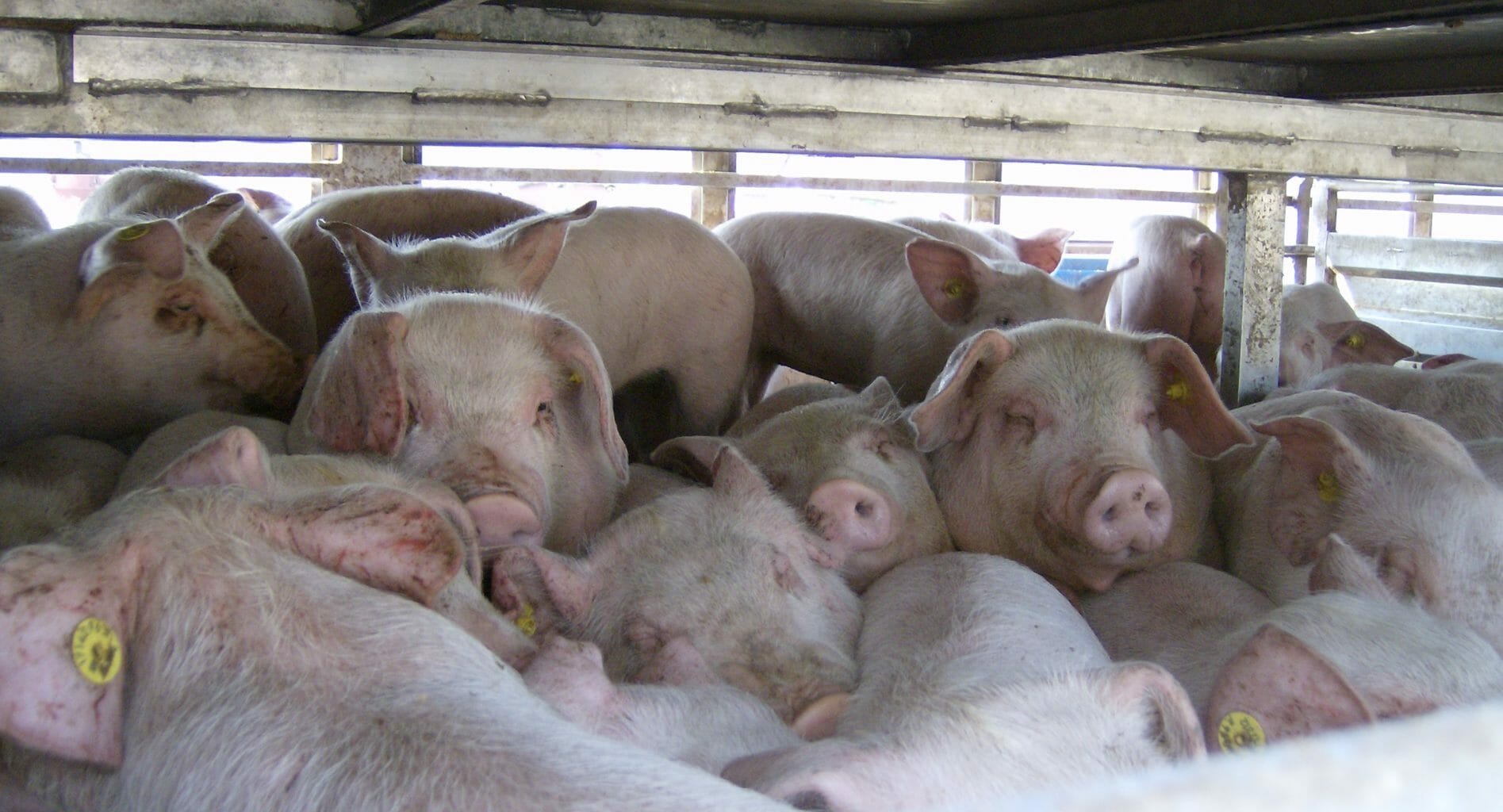Scotland risks “lagging behind” England and Wales on animal welfare by not matching the UK Government’s pledge to ban the export of livestock for slaughter and fattening, according to critics.
Environment Secretary, George Eustice MP, announced plans for a ban on 3 December, coinciding with an eight-week consultation into live exports in England and Wales.
Animal welfare groups and others have long argued that lengthy journeys cause animals unnecessary stress and suffering.
Eyes on Animals said that “Scotland should not be lagging behind England and Wales in ending this inhumane and unnecessary trade”, while the Scottish Greens said the Scottish Government was “completely out of step on this issue”.
They, along with the Scottish Society for Prevention of Cruelty to Animals (SSPCA) and Scottish animal welfare group, OneKind, called on Holyrood to follow suit and replicate the ban north of the border.
The Scottish Government claimed that Scotland does not currently ship animals for fattening or slaughter to continental Europe and said it would this week launch its own consultation into live exports.
The National Farmers Union Scotland (NFUS) argued that there is already “an excellent record on delivering good animal welfare during transport” north of the border.
First countries to end live exports
In November 2019 Boris Johnson strongly suggested banning live animal exports post-Brexit. It was then included in the Conservative’s 2019 manifesto. His government’s new rules could be implemented by the end of 2021 in a move away from EU trade rules, which prevent any unilateral changes to animal transit rules.
The ban would make England and Wales the first countries in Europe to end live exports, the government said.
Other government proposals include reducing the amount of time animals spend in transit within the UK and improving travel conditions, such as providing more space. However, the export of poultry or exports for breeding purposes have been excluded.
Around 6,400 animals were transported from the UK directly to slaughter in continental Europe in 2018, based on internal government figures.
The UK Government said it would discuss the results of its consultation with the Scottish Government, with the aim of applying similar rules across Britain. Northern Ireland will continue to follow EU legislation on animal transit, as long as the Northern Ireland Protocol is in place.
The Scottish animal charity, OneKind, said the UK Government’s move was a “landmark moment for animal welfare” and urged the Scottish Government to match its pledge.
“Animals are made to travel long journeys in cramped conditions with insufficient water, food supplies and uncontrolled temperatures”, claimed Eve Massie, a campaigner at OneKind.
“Animals may endure injuries and sometimes even die before reaching their destination”, she said. “This trade causes suffering and has no place in a modern Scotland.”
The SSPCA argued that “animals for slaughter should be processed in the UK and the meat sent refrigerated” to save livestock “unnecessary stress”.
Mike Flynn, the SSPCA’s chief superintendent added: “This is a massive step in the right direction from the UK Government and ideally we will see a consistent approach from all UK countries.”
In April, we reported that Compassion in World Farming had launched a legal challenge to stop the Scottish Government from allowing young calves to be exported all the way from Scotland to Spain.
The group argued that weeks-old calves still dependent on their mothers’ milk faced “inhumane” and “unlawful” travel conditions.
Mark Ruskell MSP, the Scottish Greens’ food and farming spokesperson, said it was “ridiculous that while other administrations are addressing long held concerns about live animal exports, this government has spent six months in the court defending long journeys for calves to Spain which they later admitted broke the rules on animal transport”.
This trade causes suffering and has no place in a modern Scotland.
Eve Massie, OneKind
The Scottish Government said it would this week launch “a consultation on the changes recommended by the Farm Animal Welfare Committee on the Welfare of Animals in Transport”.
“Any new laws proposed must recognise our established patterns of livestock movements from islands and remote areas of Scotland and not disadvantage Scottish producers”, a government spokesperson added.
The NFUS echoed the government’s view that farmers in rural Scotland rely on transporting animals in order to operate.
“Scotland’s geography means that domestic transport is an essential element of our livestock industry”, said NFUS animal health and welfare policy manager, Penny Middleton. “That has seen the use of innovative, welfare-friendly transport solutions particularly when shipping livestock from some of our islands.”
She added: “We will await to see the details in both consultations and NFU Scotland will comment further when we know what changes are proposed and what impact they may have on farmers and crofters.”
Header image thanks to Izvora, used under the GNU Free Documentation License.














